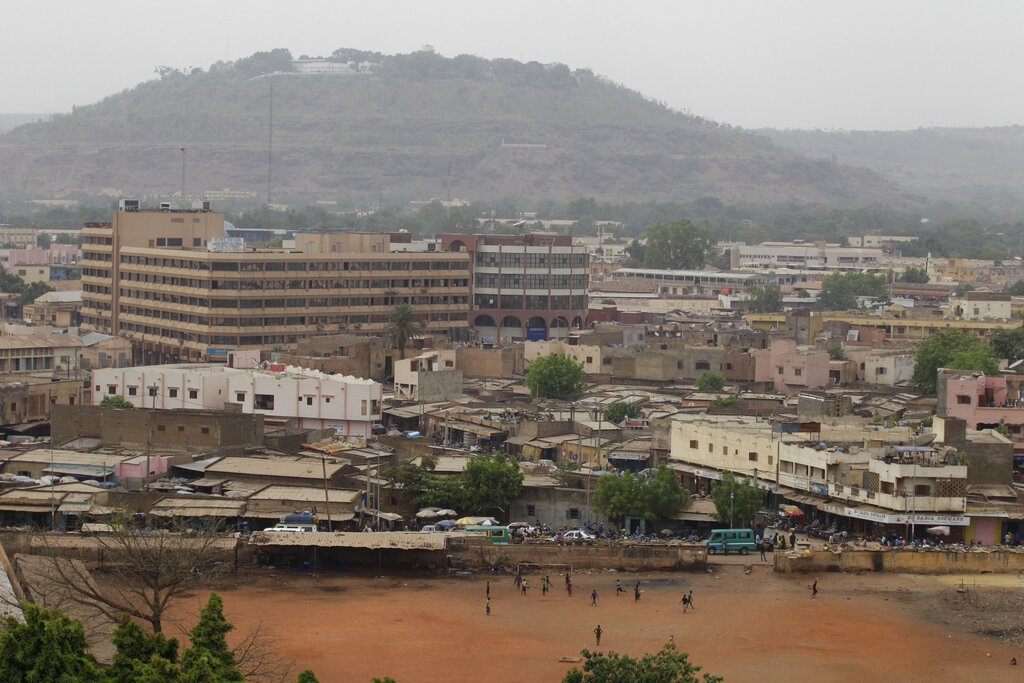As terror groups continue to launch attacks in the Sahel, some fear that the day will come when insurgents march into a capital city and topple the national government. This would follow a similar pattern that occurred in Syria and Afghanistan when state control collapsed virtually overnight.
However, analysts at the Institute for Security Studies (ISS) believe that the occupation of Bamako, Niamey or Ouagadougou by Sahel-based terrorists is unlikely in the short term.
“They lack the firepower and logistical capabilities to sustain a prolonged siege and occupation of a major city,” wrote ISS analysts Djiby Sow and Hassane Koné. “Their strength lies in mobility and local knowledge rather than the capacity to occupy and govern territory for long periods.”
Groups including Jama’at Nusrat al-Islam wal-Muslimin (JNIM) and the Islamic State in the Greater Sahara (ISGS) have taken advantage of a lack of state presence in rural areas and established “shadow governments” through which they mediate conflicts, collect taxes and impose a harsh interpretation of Shariah.
An estimated 30% of Burkina Faso’s territory and 50% of Mali lies outside of state control. In these rural regions, civilians, desperate for peace, have shown a willingness to align with any group promising stability.
“The populations in many areas outside of the capitals view their government as indifferent and, when it is present, ineffective and ill-intentioned,” Michael DeAngelo wrote for the Foreign Policy Research Institute. “Jihadist groups view this shortcoming as an opportunity to control territory by providing security and governance.”
Wassim Nasr, a France24 journalist who interviewed one of the founders of a JNIM branch, similarly believes that occupying a capital is unlikely because Sahelian terror groups do not have strong logistical capabilities and are not supported by many residents in major cities. The best estimates place JNIM’s size at about 6,000 fighters, likely too small to control a national capital.
“While in theory they would like to take over these cities militarily, taking Bamako or Ouagadougou or Niamey would be very costly for them in terms of governance and management,” Nasr told the Combating Terrorism Center. “With large segments of the population in these cities being hostile to them, it would not be easy.”
But Nasr cautioned that he would not rule anything out if the groups make large territorial gains and see an opportunity to seize power. A September 2024 JNIM attack in Bamako targeted a military police school and the international airport, showing the group’s willingness to strike the capital.
“It does not make sense for them to take the cities from a rational point of view, but of course, you should keep in mind that we are not talking only about rational actors here and it is possible for irrational decisions to lead to gains on the ground for them,” Nasr said.
The greater risk may be what analysts call “state fragmentation” in which the state continues to fail to provide services or security to large swaths of the country. In that vacuum, terror groups will become the de facto government and be able to recruit fighters and profit from an illicit economy. As they expand, they might be able to establish a “proto-state” that crosses several Sahelian borders.
Sow and Koné wrote that in Mali, which has been in a state of crisis since 2012, children are entering adulthood without having known peace. The researchers point to young, radicalized JNIM fighters brazenly attacking a military installation June 2 in Timbuktu.
“The youthful appearance of the assailants in the foiled 2 June Timbuktu attack should be a wake-up call to [Sahel] strategists,” Sow and Koné wrote. “It reflects a generation of children deprived of schooling due to chronic insecurity, and whose families lack access to income, justice and essential social services. These factors are potent drivers of recruitment into armed groups — and cannot be solved through military means alone.”
With capital cities such as Bamako and Ouagadougou now encircled by regions plagued by terrorism, some analysts fear that terror groups, especially JNIM, have momentum and are determined to keep advancing.
“They’re creating a proto-state that stretches like a belt from western Mali all the way to the borderlands of Benin,” Héni Nsaibia, West Africa senior analyst for the Armed Conflict Location & Event Data project told The Washington Post. “It is a substantial — even exponential — expansion.”

